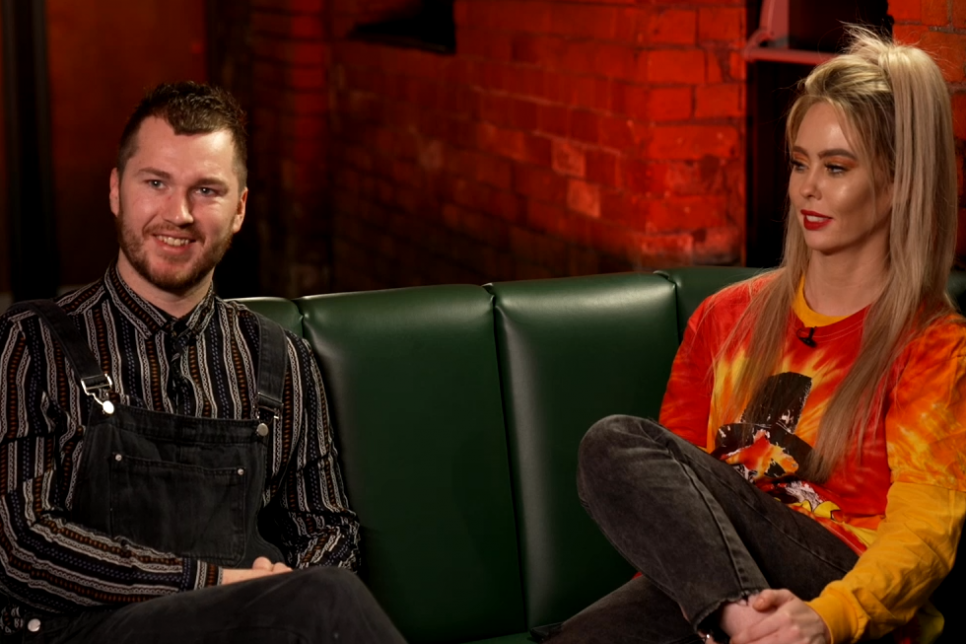Wales is a nation of storytellers, tell us your story…
NoGood Boyo started as a group of musicians and friends who wanted the chance to hang out and drink together. After a night of pints in the pub, NoGood Boyo was born. Named after Dylan Thomas’ bad boy character from Under Milk Wood, NoGood Boyo causes havoc in the wash house and whose only motivation is Mrs Dai Bread Two in her corset. We, however, are more interested in causing havoc with Welsh trad music and tearing up the festival dance tent. We stand by our motto, go loud or go home boyo!
What is your connection to your corner of Wales?
We are each deeply connected to our various corners of Wales. Between us we cover the Tawe, Afan and Ebbw Fach valleys, and the legendary village of Nefyn on the Llŷn Peninsular. Our different heritages are a strong influence on our music, from the fisherman of Penllŷn to the miners of South Wales, we find local historic characters in our traditional song narratives whilst connecting to modern day Wales through songs like Rhyddid Ffug and Y Bardd o Montreal.
Wales has stories of legends going back millennia through to the modern today, does your music connect to these, what is their story?
Each and every Welsh traditional song is a snapshot of local legend. Our songs are bringing to life stories of everyday people, whose narratives have been captured in song. From the broken-hearted lover to the story of the vicious Welsh husband and his awful treatment of his wife, everyday legends from the past are given new life and are given a powerful new context in the modern every day.
Linguistics and language play a huge part in Welsh culture, what is it that makes it so special?
The Welsh language, like it’s Celtic cousins, is an incredible example of linguistic resilience. Our language has survived against all the odds to flourish as a modern language. The language brings with it the key to a greater understanding of Welsh heritage and history, as well as supporting our modern national identity.
Wales has often been known to be a land of storytellers, yourselves included through your music. As Wales evolves and new sounds come to the forefront, what kind of Wales do you see the torch being passed onto in the future?
As ardent supporters of Welsh independence, we hope to see a forward looking and inclusive Wales; A country that is deeply rooted in our unique heritage and culture but one that looks towards the future with an innovative eye.
Wales has often been known to be a land of storytellers, yourselves included through your music. As Wales evolves and new sounds come to the forefront, what kind of Wales do you see the torch being passed onto in the future?
As ardent supporters of Welsh independence, we hope to see a forward looking and inclusive Wales; A country that is deeply rooted in our unique heritage and culture but one that looks towards the future with an innovative eye.
What are your Celtic connections?
As a band we are often working on the inter-Celtic scene. It is at these events that we feel the connections between ourselves and the other Celtic nations. The Festival Interceltique de Lorient is the best example of this. It’s always an opportunity to share and compare our Celtic heritage with musicians from the other Celtic nations. Whether it is language, dance or music, Wales’ Celtic connections are at their most tangible during the small and large moments of a festival like Lorient.
You’re embarking on new international opportunities, what collaborations or opportunities are you most looking forward to
We are most looking forward to the opportunity to deliver our own interpretation of Wales’ cultural heritage on an international stage. Wales is often overlooked when it comes to traditional music, so we are keen to stand up alongside our Celtic cousins to celebrate our shared and unique Celtic heritage.

